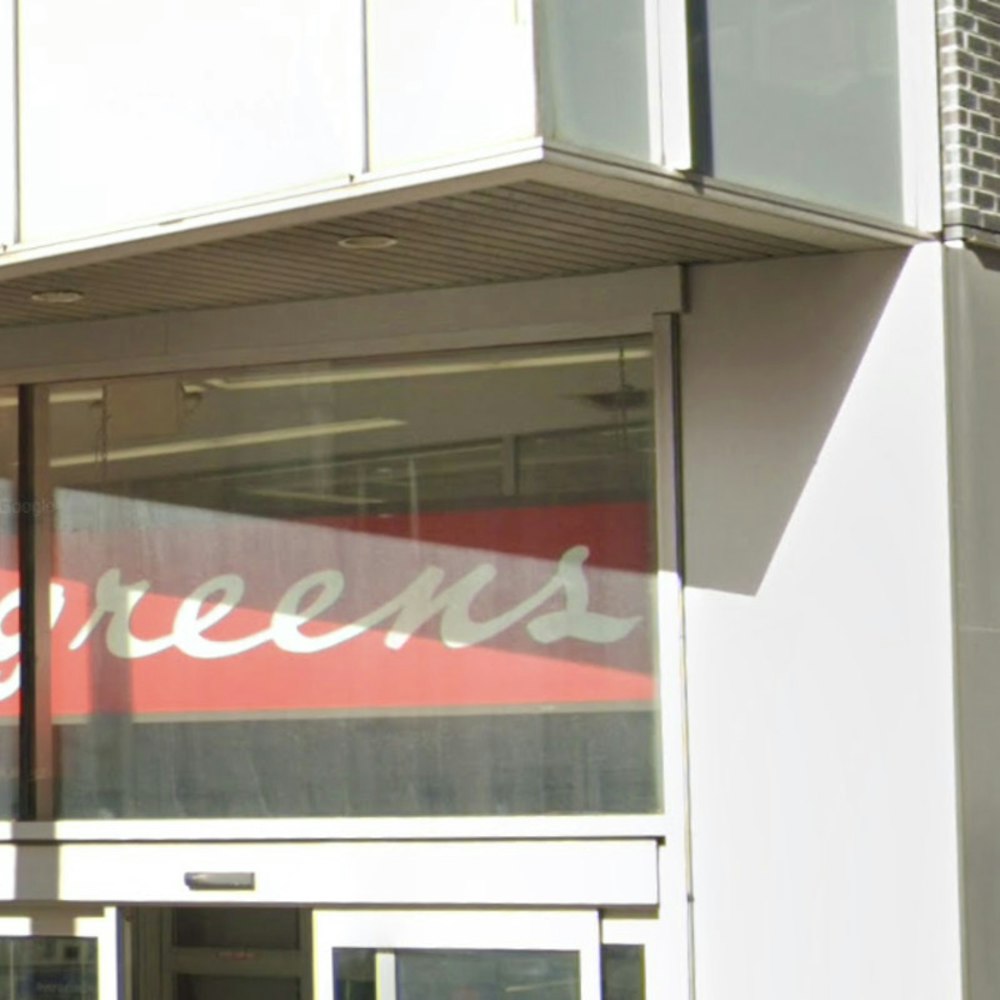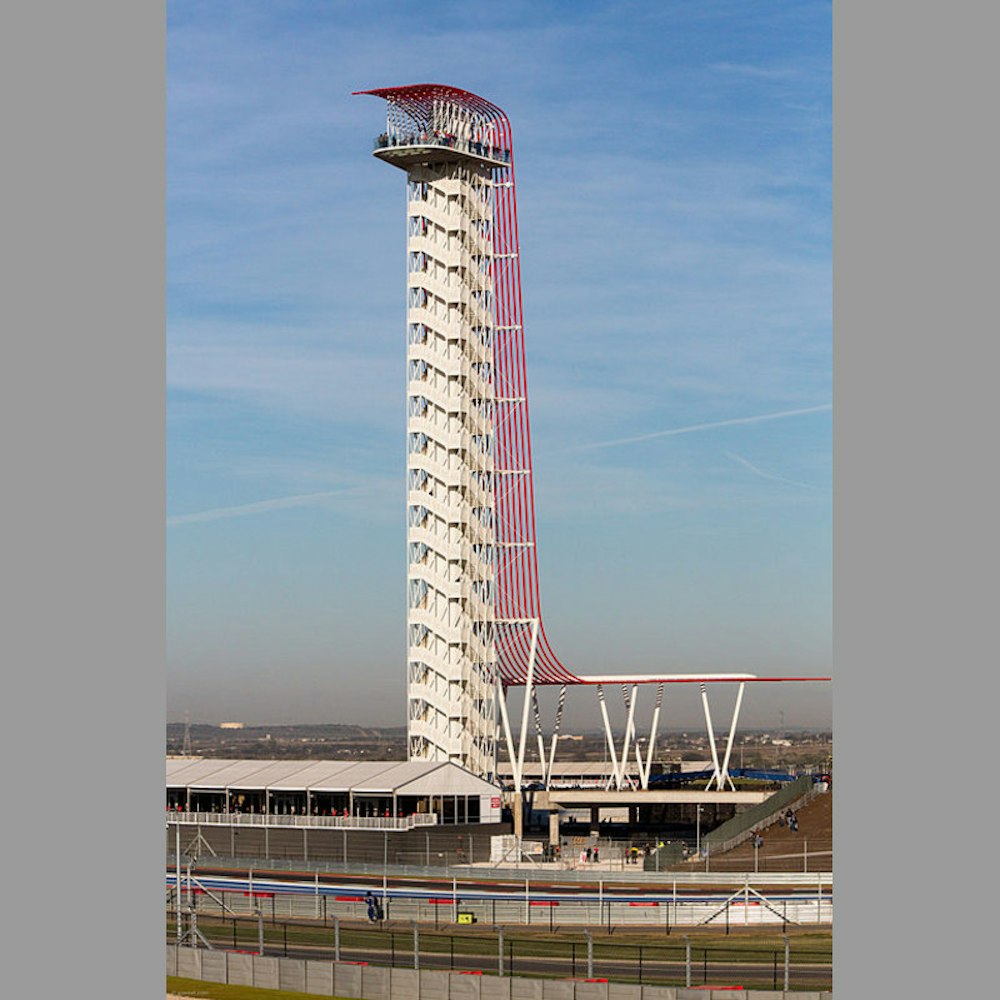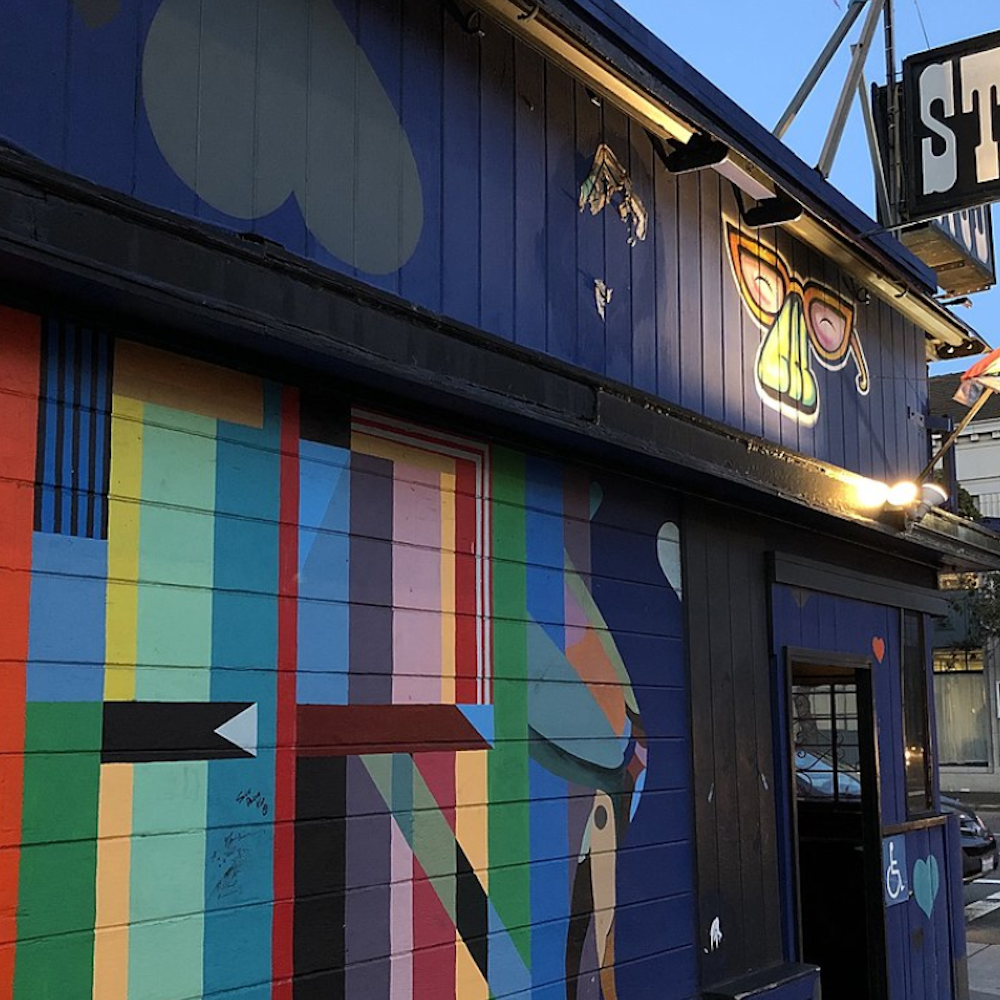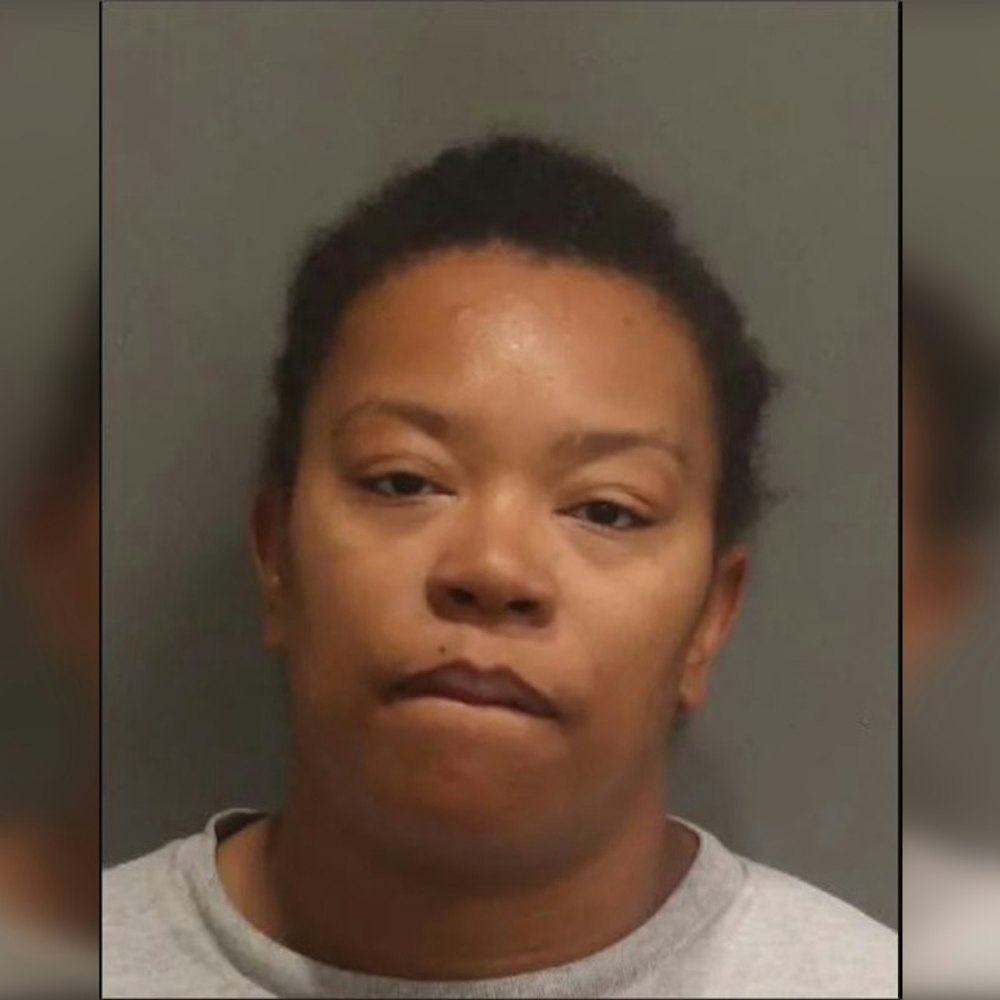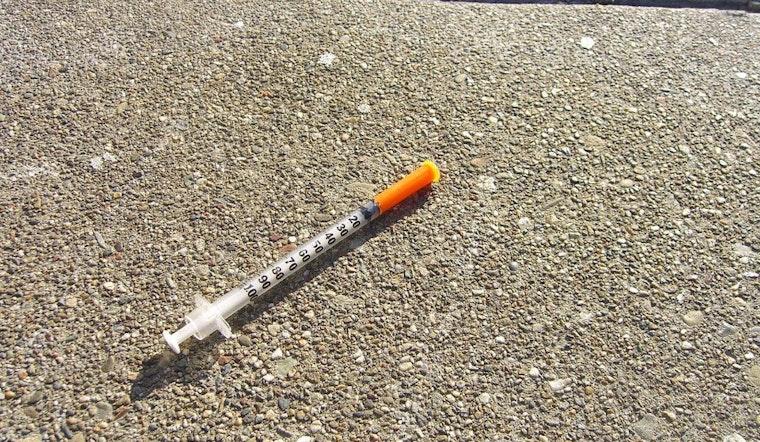
Two new efforts to reduce improperly discarded syringes on central city streets are coming to fruition this summer.
The first is an old idea that's being tested in SoMa for the first time: publicly accessible syringe disposal boxes.
Eileen Loughran, program manager for the Department of Public Health's Syringe Access & Disposal services, says the neighborhood's first collection box was installed about two weeks ago on the front of the residential hotel The El Dorado at 150 Ninth St., between Mission and Howard.
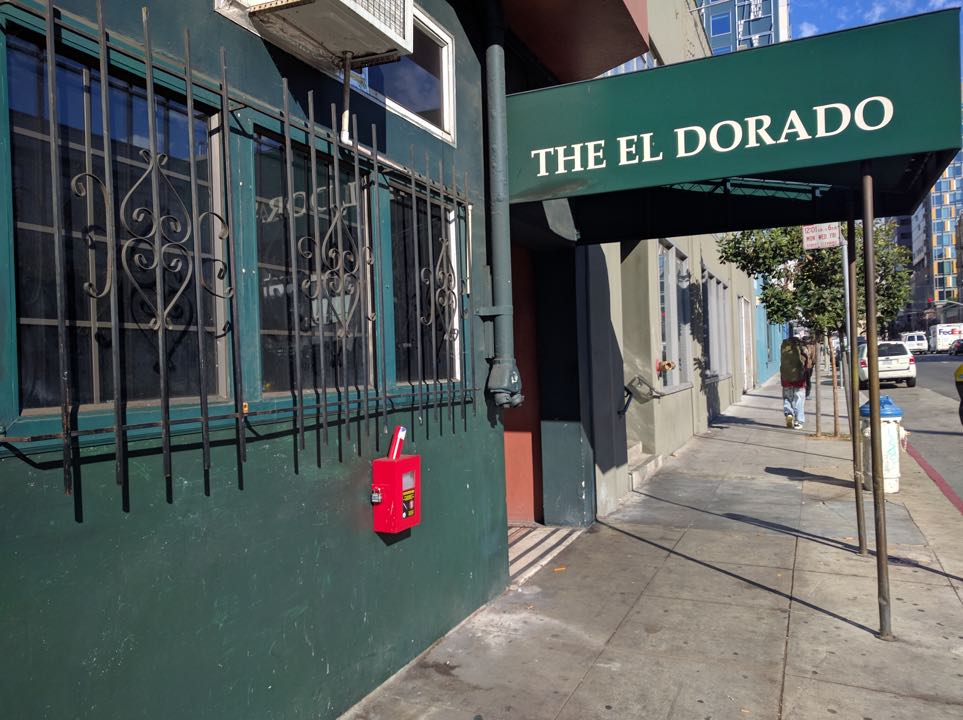
El Dorado is managed by Conard House, a nonprofit supportive housing provider focused on people living with chronic mental illness. Conard House staff approached the department with hopes of testing public disposal boxes by installing one on the front and one on the back of their 10-unit building, Loughran said. While neighbors along Washburn alley were wary of installing a box on their block, for fear that the box would drive more drug users to the area, the community did agree to a three-month trial on Ninth Street.
The box is emptied weekly by the San Francisco AIDS Foundation, one of the department's many community partners.
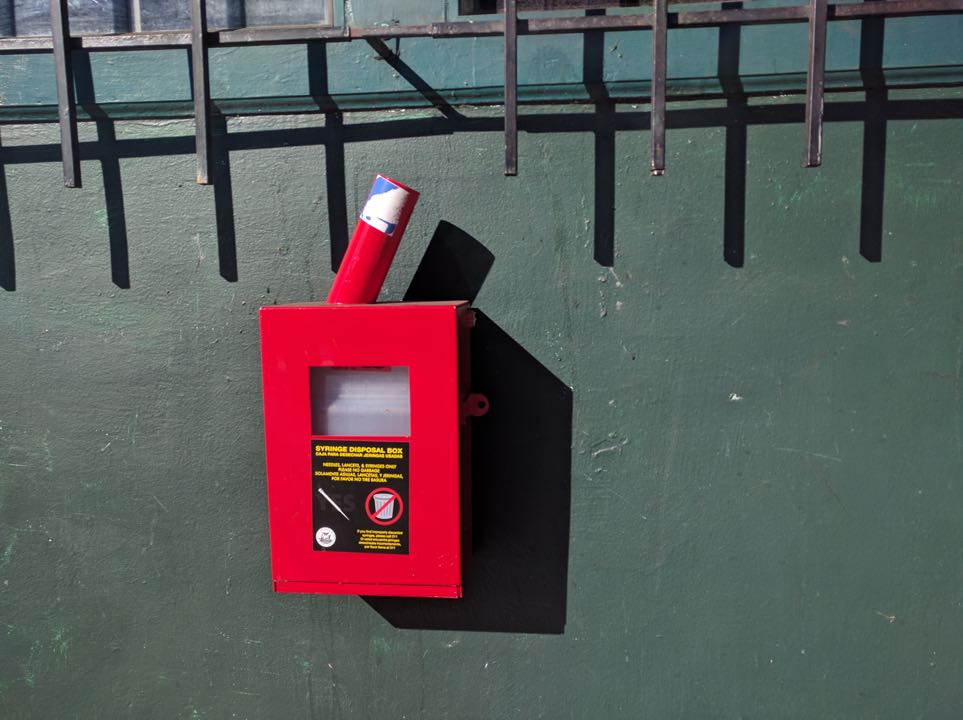
The Human Services Agency has also been in contact with DPH regarding installation of disposal boxes on the Howard and Minna sides of their building, between Eighth and Ninth streets. Minna Street residents have shared similar concerns as Washburn residents about placing a disposal box on their block and would prefer to try installing just one on Howard Street, Loughran said.
The downside to such a compromise: fewer drug users frequent the Howard Street side of the building, Loughran noted. But conversations about the potential site will continue.
The El Dorado Hotel's new syringe disposal box is the 11th to be installed in the city. Others are located in the Tenderloin, Civic Center, Hayes Valley, Mission and Eureka Valley.
And some of those boxes do appear to be working. "We have seen a steady increase in use of the disposal boxes at 150 Golden Gate and 149 Turk," Loughran said. When emptied weekly, each 1.5 gallon box is roughly half to three-quarters full, which comes out to roughly 200-300 syringes. "That is 200-300 less syringes on the street or sidewalk."
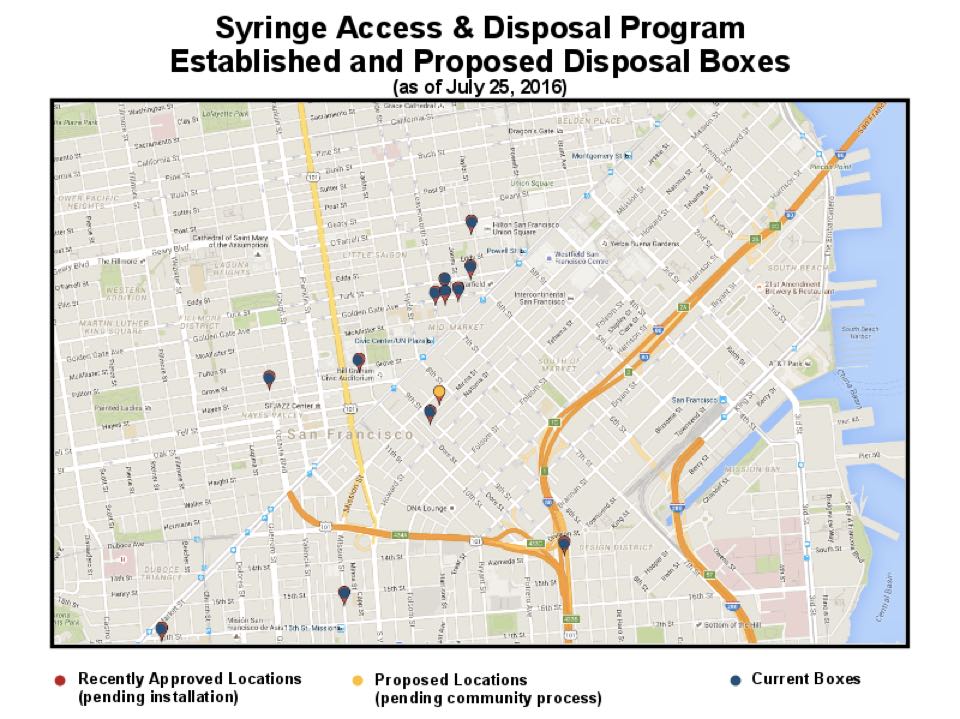
Another effort Loughran hopes to roll out by mid-August is a new rapid response team.
One of the biggest concerns she hears from the community is about long wait times for 311 requests to be handled, Loughran said. Some have reported estimated wait times as long as 20 hours.
To remedy this problem, Loughran's department began interviews this week for three staff positions that will be tasked with collecting improperly disposed needles on the street. In addition to making regular rounds, community members will be able to contact a separate number, and rapid response team members will respond in real-time.
The exact dispatch number and process is still being ironed out, but Loughran says her office has been piloting the idea and it has been working.
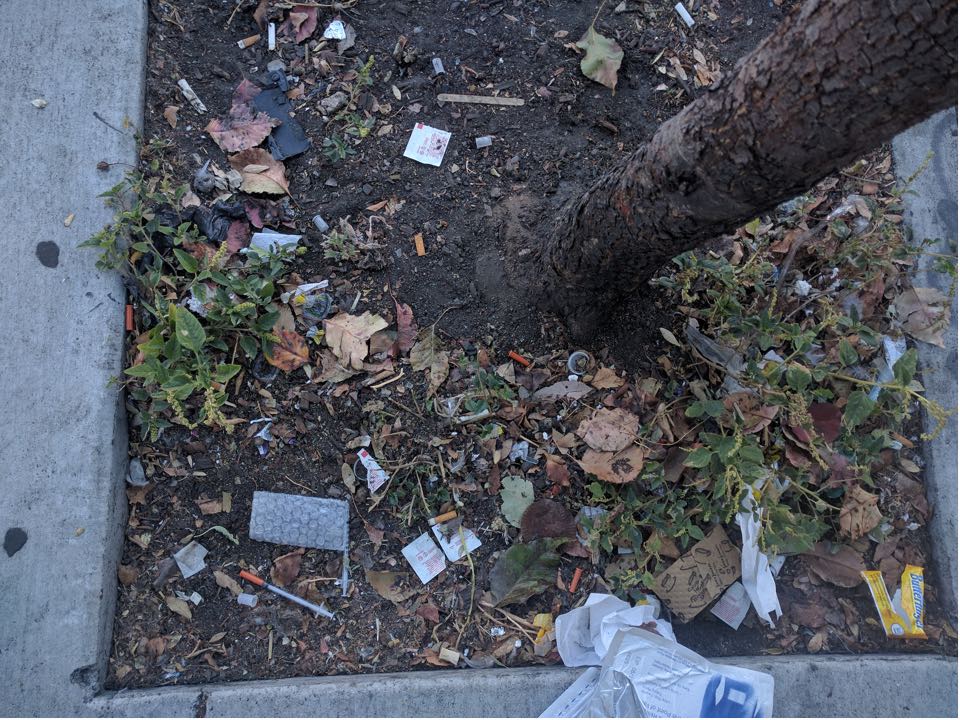
While the rapid response team is a citywide effort, Loughran said that based on feedback from partnering city departments and community groups, as well as 311 data, the current hotspots for improperly disposed syringes are in SoMa, the Tenderloin and the Safeway at Market and Duboce. She plans to have the team visit those areas regularly.
Rapid response team members will also conduct outreach to drug users on the streets, distributing disposal supplies and discussing the importance of proper disposal. So far, users at Civic Center (where a similar rapid response team launched earlier this year) and Minna Street have been receptive to such conversations, Loughran noted.
Looking at the problem holistically, Loughran stressed that the city's syringe access program is doing a "real good job" of decreasing the number of new HIV and Hepatitis C infections. The downside to that success is improperly discarded syringes, and the city is working hard to mitigate that side effect, she assured.

